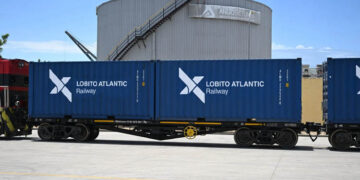The transfers of expatriate salaries in Angola may face “a significant impact” with the implementation of the new Foreign Exchange Operations Contribution (CEOC), which may also reflect on inflation, according to a consultant from Deloitte.
João Erse, tax consultant at Deloitte, spoke to Lusa on the sidelines of a clarification session about the Special Contribution on Foreign Exchange Operations (CEOC), organized by Banco Caixa Geral Angola.
The CEOC, which comes into effect today, applies to all transfers abroad in foreign currency, with a rate of 2.5% for individuals and 10% for corporations. The bank conducting the operation is also responsible for withholding this tax.
The CEOC targets service fees, technical assistance, consultancy, and management, capital operations, and unilateral transfers, excluding health and education expenses provided they are made directly to the service providers.
The measure also establishes exemptions for the State and its bodies, as well as diamond and oil investors, and transfers of dividends and debt service incurred abroad.
“The remittances of salaries will have an additional cost of 2.5% that they did not have before, and naturally, the net income will be less; that will be the great impact,” he highlighted, admitting that the measure also affects the levels of savings in Portugal and other countries to which remittances are sent.
According to João Erse, only salaries transferred by the employer to the foreign account of the worker are not subject to the CEOC.
Another issue he raised concerns exchange rate risks, which are borne by the worker: “there are two risks, the first is the loss of value of the salary that (the worker) received due to the devaluation of the currency, and then this additional tax charge of 2.5%,” emphasized the CEOC partner.
Many Angolans who send money to their relatives living abroad or who buy houses in Portugal will also feel the effects of the measure, which is included in the General State Budget for 2024.
“These transfers will pay CEOC, there are only two exclusions for health and education expenses provided the money is transferred from the beneficiary’s account directly to the account of the educational or health institution,” the consultant indicated.
For example, if there is a need to transfer funds from Angola to buy a house in Portugal, this will also have to pay CEOC.
For João Erse, there are other effects to consider, namely the increase in inflation, since economic operators and service providers will reflect this rise in the final customer.
“This will naturally cause an increase in prices and inflation,” he stressed.
On the executive side, besides the tax revenue, the measure may have other objectives such as creating additional constraints on contracting services to non-resident entities, opting for services provided locally.
“One of the consequences will be the flourishing of specialized technical services that can be provided here (in Angola) instead of contracting services to non-resident entities,” stressed the Deloitte official.



















![[Kenya] Digital credit provider Tala disbursed Sh240 billion in loans in eight years 19 [Kenya] Digital credit provider Tala disbursed Sh240 billion in loans in eight years](https://theafricanbusiness.com/wp-content/uploads/2023/02/TALA-APP-360x180.jpg)













